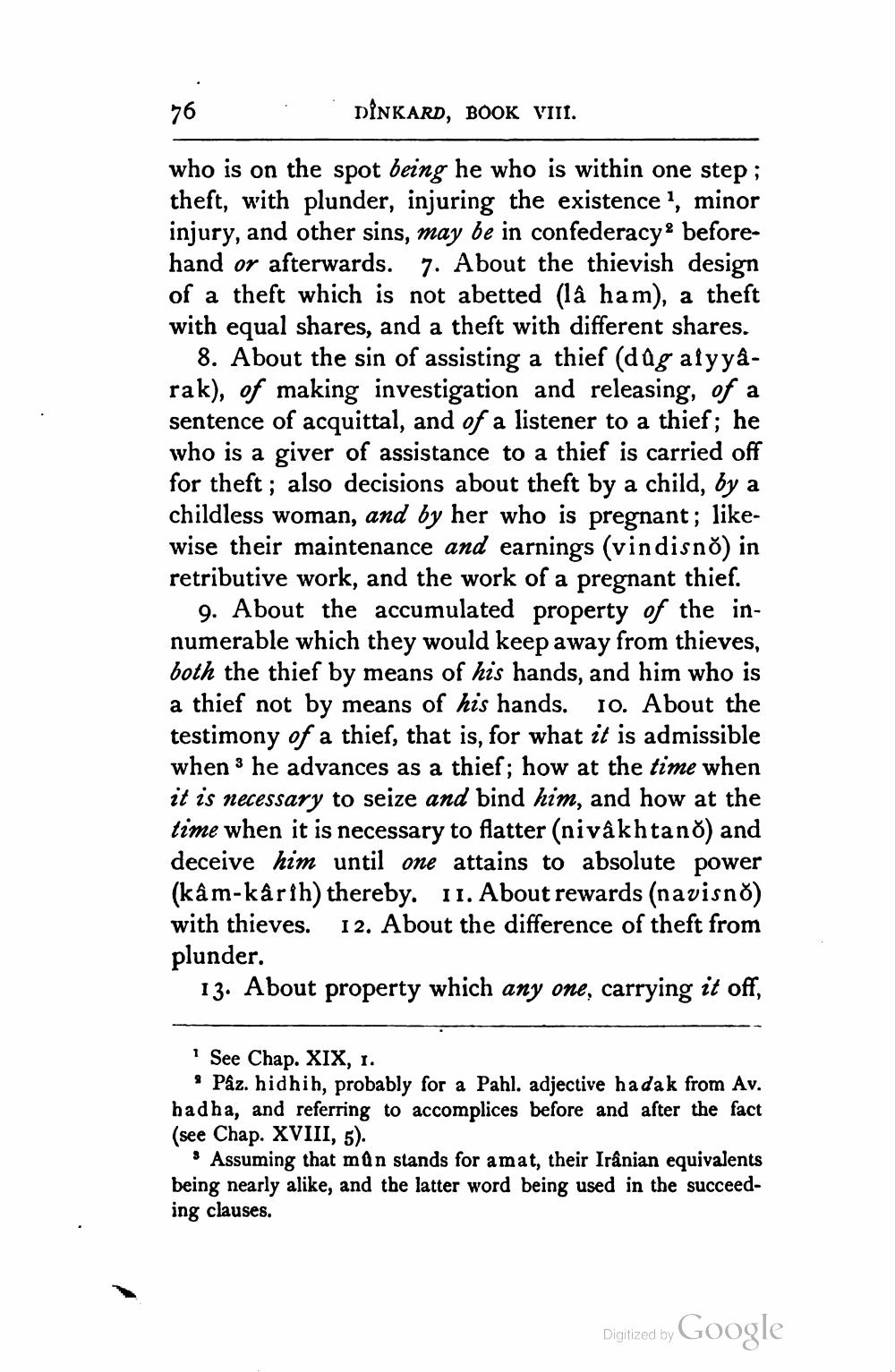________________
DİNKARD, BOOK VIII.
who is on the spot being he who is within one step; theft, with plunder, injuring the existence , minor injury, and other sins, may be in confederacy? beforehand or afterwards. 7. About the thievish design of a theft which is not abetted (lå ham), a theft with equal shares, and a theft with different shares.
8. About the sin of assisting a thief (dag aiyyarak), of making investigation and releasing, of a sentence of acquittal, and of a listener to a thief; he who is a giver of assistance to a thief is carried off for theft ; also decisions about theft by a child, by a childless woman, and by her who is pregnant; likewise their maintenance and earnings (vindisno) in retributive work, and the work of a pregnant thief.
9. About the accumulated property of the innumerable which they would keep away from thieves, both the thief by means of his hands, and him who is a thief not by means of his hands. 10. About the testimony of a thief, that is, for what it is admissible when : he advances as a thief; how at the time when it is necessary to seize and bind him, and how at the time when it is necessary to flatter (nivâkhtano) and deceive him until one attains to absolute power (kâm-kârih) thereby. 11. About rewards (navisno) with thieves. 12. About the difference of theft from plunder.
13. About property which any one, carrying it off,
See Chap. XIX, 1. 9 Paz. hidhih, probably for a Pahl. adjective hadak from Av. hadha, and referring to accomplices before and after the fact (see Chap. XVIII, 5).
Assuming that mûn stands for amat, their Irânian equivalents being nearly alike, and the latter word being used in the succeeding clauses.
Digitized by Google




